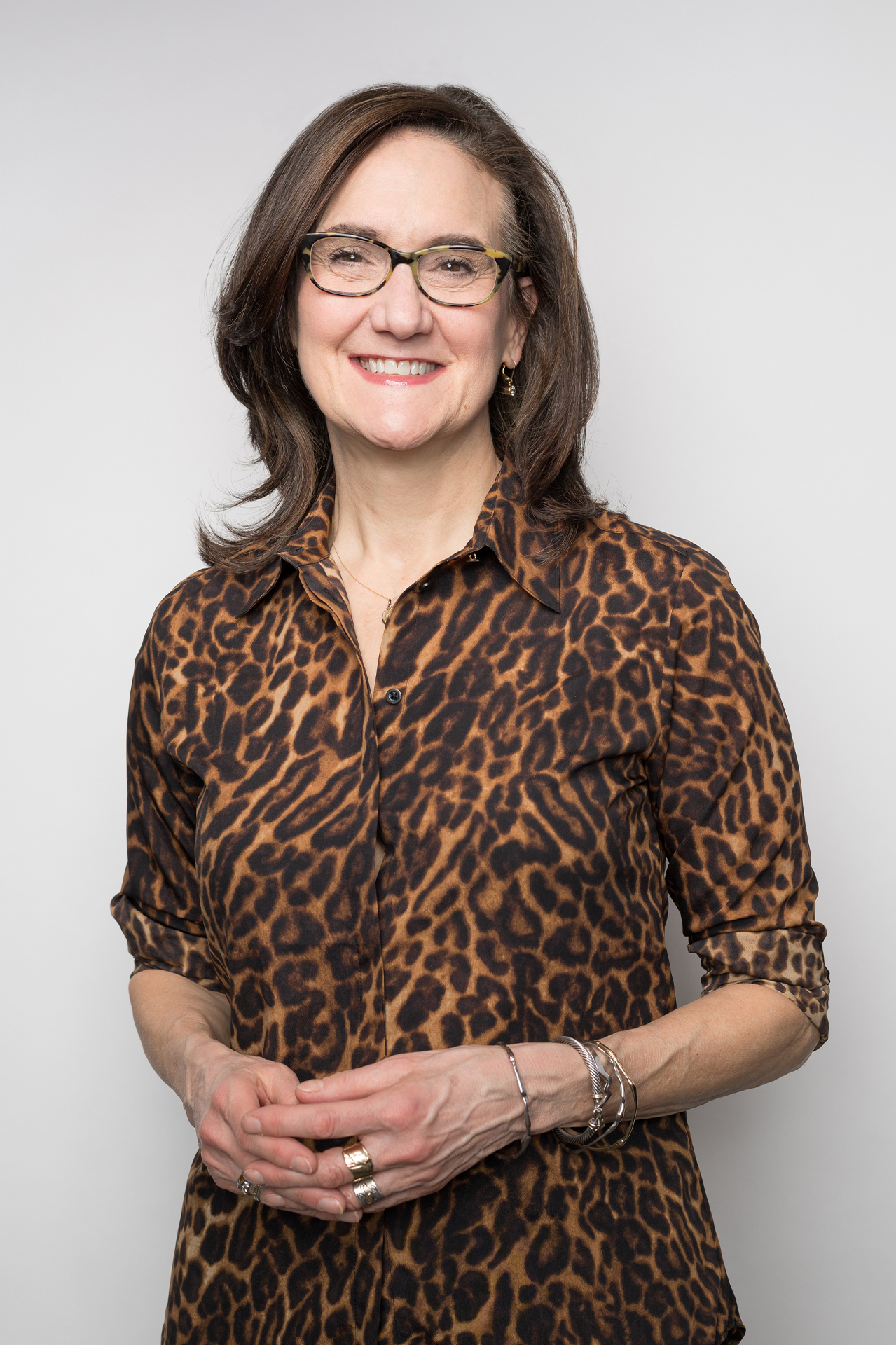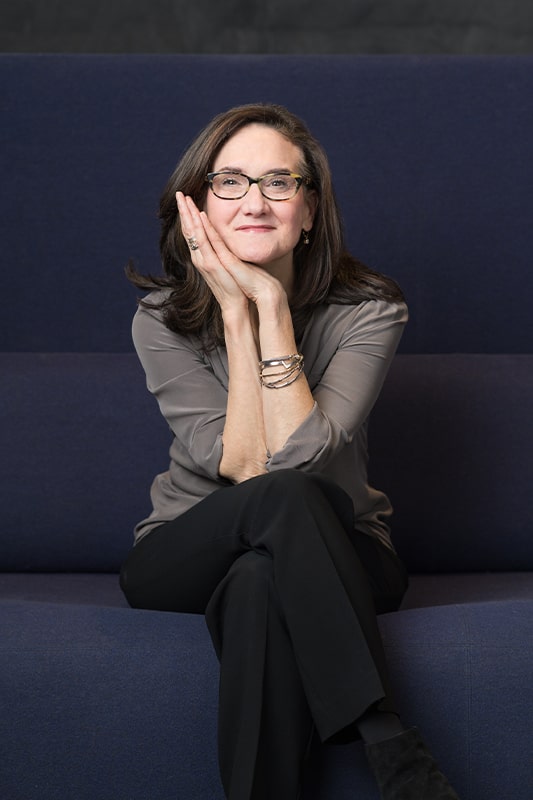
Sally
Blount
Chief Executive Officer, Catholic Charities of the Archdiocese of Chicago
The main thing Sally Blount knew about herself is that she was hardworking. What she didn’t know about herself—what she needed others to point out to her—was that she was also a gifted leader. Those gifts made her one of the most powerful women in academe in 2010 when she became dean of the J.L. Kellogg School of Management at Northwestern University—the first woman to lead a top-ranked U.S., much less global, business school.
It wasn’t the path she’d originally imagined for herself. The daughter of a Bell Labs physicist and an educator, Sally studied engineering at Princeton. A desire to understand business landed her a job with Boston Consulting Group (BCG) out of college, and then a chance to be the business manager for a woman-owned design firm in Chicago with a growing national reputation.
But Sally also wanted to start a family. And she figured a good way to keep working and be a mother was to get into academia. She enrolled in the Ph.D. program at Northwestern University’s Kellogg School of Management. As she has put it, they luckily took a chance on a pregnant graduate student with a crazy schedule. Or, as Northwestern might have seen it: Here was a bright new talent asking to be developed.

Enter the hardworking part: In four years, Sally completed her master’s and doctorate degrees in Organizational Behavior from Kellogg—and produced two babies. “It was kind of a blitzkrieg,” she says. “But Kellogg helped me go for it, and this was in the 1980’s, which was really quite remarkable . . . The fact that there were people, back then, who took it as a personal mission to develop talent when they saw it was really important.”
The next part of the journey got harder. Stints at The University of Chicago as a young professor working toward tenure and at New York University serving as Dean of the Undergraduate College of Business tested Sally’s belief that she could balance family and career and still climb the ladder. Out of a faculty of 120 at U of C, Sally was one of fewer than 10 women—and for many of her nine years there, the only woman with children. The decision to move to NYU was life-changing. At NYU, others spotted Sally’s abilities in negotiating and leading and encouraged her to consider a leadership role. “It was a skill set I didn’t know I had,” she says. “Imagine being 42 years old and discovering that there’s a whole new chapter ahead. The best times in my life were when people just wanted to help me because they saw raw talent.”
When the deanship at Kellogg opened up, Sally’s rising star caught the attention of Northwestern, and she returned to her alma mater—but to a school that was facing major challenges. Kellogg’s reputation was skidding. Construction for a new building for the business school had been stalled for a decade. A major fundraising campaign was failing to catch fire.
Sally went to work. And she got results. In eight years at Kellogg’s helm, she oversaw construction and completion of the 415,000 square-foot Global Hub on Northwestern’s Evanston campus, raised nearly $400 million dollars, and did much to elevate Kellogg’s reputation—in rankings, media presence, and research impact—and particularly as a place that encourages women in business.
And then she stepped away.
“When you get to top,” she says, “one of the challenges that happens to women is that there are fewer people who know how to mentor or sponsor them. And I think a lot of women who’ve been really successful reach a point where they say, ‘I’m tired.’ For me, after decades of being both the primary breadwinner and primary caregiver for my children, I needed time to step back and reflect with intention about what I want to do with my last chapter.”
After taking a sabbatical, Sally is hard at work again. She’s still writing books and teaching about organizational change at Kellogg, yet her most important new role is as Chief Executive Officer of Catholic Charities of the Archdiocese of Chicago. Catholic Charities is a giant among social service agencies in the Midwest, ministering to more than 700,000 people each year in the Chicago area regardless of faith, ethnicity, or economic status. The organization, founded more than 100 years ago during a worldwide pandemic, is being called again to deal with drastic challenges brought by disease and economic upheaval.
“It’s an unprecedented moment in human history,” she says. “And yet I feel so lucky. I’ve had the chance to do things and be part of conversations that my mother and grandmothers never could have imagined. It’s in times like this that we can shine brightest.”